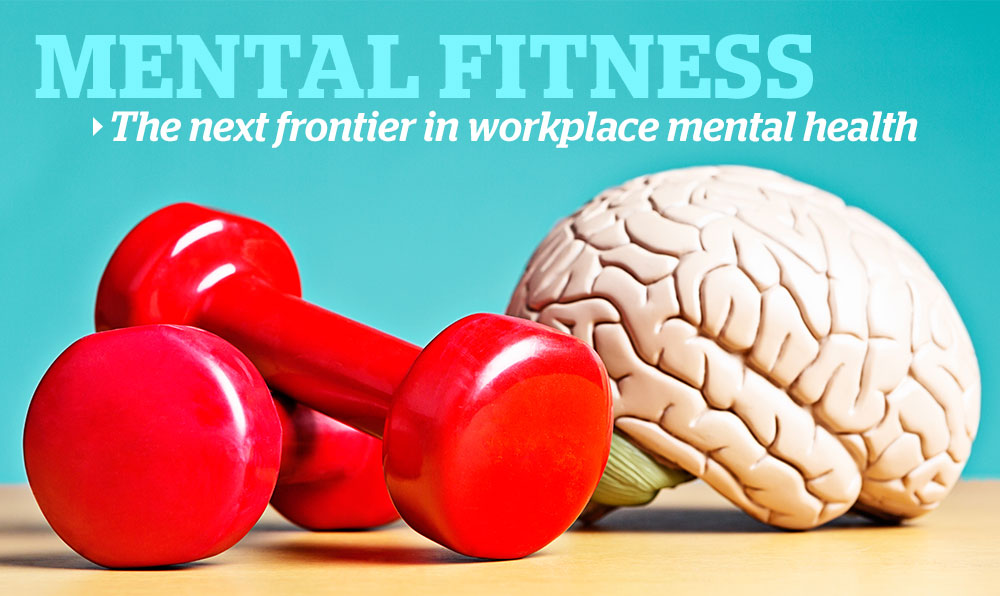

Columns/Blogs
Features
Mental Health
Dealing with life’s potholes requires a flexible mindset
By Bill Howatt

EDITOR’S NOTE: ‘Mental Fitness: The next frontier in workplace mental health’ is a weekly series, in partnership with Dr. Bill Howatt of Howatt HR Consulting in Ottawa. This series takes a deeper look at mental fitness — an approach to prevent mental harm and promote mental health.
Mental health is how we experience the world, and there is nothing more concrete than our current perception.
I find it amazing when someone says mental health is a soft thing you cannot measure. That is not true.
We have these things called feelings, and how we feel is how we experience the world. The longer we feel bad, the more emotionally challenged to find hope, satisfaction, and peace.
If you were the CEO of an organization and could at any moment know all employees’ emotions, the idea that mental health is a soft construct would be gone because an organization’s sustainability often depends on human will, a.k.a. emotion.
If organizations do not promote good mental health and employees do not feel safe coming to work, long-term sustainability is at risk. CEOs must accept that mental health is not mental illness; it is the lens through which employees experience the world, and it matters.
Good mental health without emotional well-being is impossible for any employee. This microskill explores the value of planning for life’s potholes.
I see the sky is blue; you see it clear. Who is right, and who is wrong? How many spend each day processing the same inputs with people we interact with and arriving at different perceptions?
A particular circumstance, situation, or desired expectation feeds perception. I expected to see a blue sky, so I am happy. Because you anticipated a pink sky, you are disappointed.
We often differentiate good from bad by some preconception of a desired expectation.
Did you expect to step into a pothole when you woke up today, something you did not expect, want, and preferred not to happen?
With potholes come concern and fear, often referred to as stress. The challenge for many may not be the pothole; instead, expectations being unmet. Because you did not want to step into the pothole, the focus is now your reaction, not the hole in the ground.
Psychologically Safe Workplace Awards provide employers tools, data on mental health
Tips for preparing for life’s potholes
Creating a flexible mindset can help set our mental frame to deal with potholes.
It is OK to get support and talk about potholes when necessary. We do not need to figure out everything alone, but we can help ourselves by mentally preparing for life’s potholes.
Desire does not equal reality: We can desire never to have anything uncomfortable happen, but this is not reality. We need to be careful setting expectations.
For example, getting along all the time in a loving relationship will not happen. By talking about how you will deal with potholes as a couple, you create the expectation that you will encounter them and plan how you will cope with difficulties.
You can adapt this logic to parenting, work, and teams. Potholes are not the problem; the problem is not expecting challenges will happen.
Ultimately, it is not the event that defines our mental health; it is how we react.
Stop false expectations: Expecting perfection, that things will always work out as planned, and people will not change their minds are scripts some run without paying attention to how such expectations set us up for hardship.
We create more mental flexibility when we learn not to take things personally because something or someone changes their mind, and accept that stuff happens.
You can develop this skill through practice. By deciding to be more mentally flexible, you position yourself to deal with potholes.
One way to prepare mentally is to run a situation through your mind. If you plan an activity with someone and they cancel at the last moment, what is your plan B? Sitting around, feeling bad, and wondering why they cancelled is not helpful.
What is helpful is being clear of what is in your circle of control: your actions. You can still go to the activity or invite someone else.
Too many set ourselves up with expectations that things will always work out. They will not; life happens.
Most times, things do work out but not always. We get to be our life umpires and to call a situation terrible or tolerable.
 Dr. Bill Howatt is the Ottawa-based president of Howatt HR Consulting.
Dr. Bill Howatt is the Ottawa-based president of Howatt HR Consulting.
If there is a particular microskill or topic you would like to see Dr. Howatt write on that supports employees’ mental health in the workplace, please send your request to Talent Canada editor Marcel Vander Wier.
Print this page